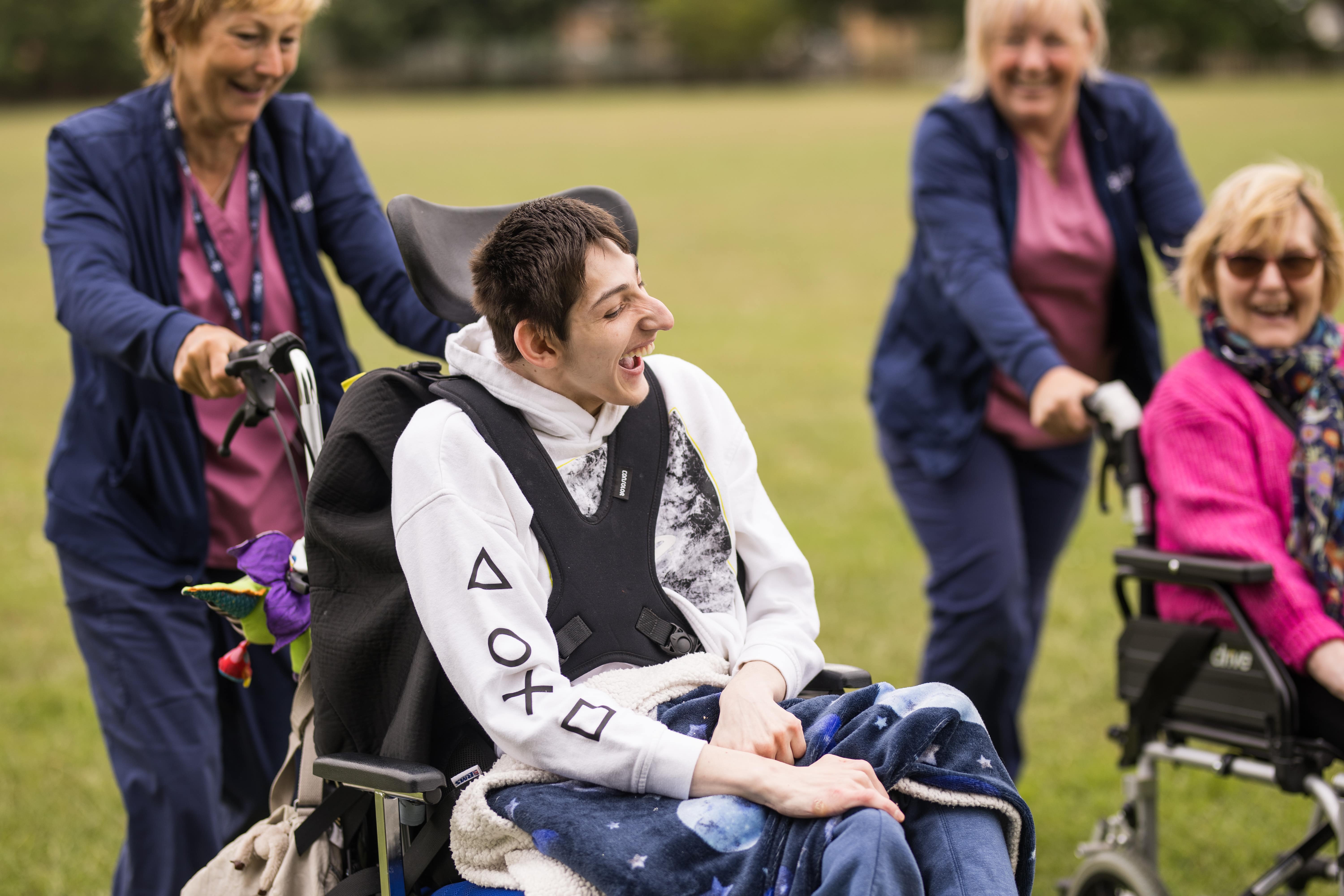Dementia is a progressive, chronic health condition involving difficulties with memory function and thinking abilities. It is an umbrella term that covers several distinct conditions that cause this decline (such as Alzheimer’s disease and vascular dementia).
These changes can have a profound impact on an individual’s quality of life and ability to undertake daily activities. This can cause significant distress for the person with dementia as well as their loved ones. Due to these profound changes, early detection is crucial for planning future care and enhancing outcomes.
This blog will cover the early signs of dementia, providing tips for families and advice on accessing support.
Understanding Dementia and Why Early Detection Matters
Dementia is a syndrome (a set of symptoms) caused by a range of diseases that damage nerve signalling in the brain. This leads to a decline in cognitive abilities, including thinking and memory, over time. Importantly, these changes differ from the typical slowing and forgetfulness associated with normal ageing.
Symptoms of dementia differ depending on the cause and individual factors. Common symptoms include:
- Forgetfulness - initially impacting short-term memory but often progressing to long-term memory impairment.
- Becoming confused - especially in unfamiliar settings.
- Difficulty with problem-solving and making decisions.
- Problems following conversations or word finding.
- Mood and behavioural changes - this may include withdrawal from social engagements or the development of unusual behaviours.
Remember, dementia is an umbrella term for a variety of conditions, including:
- Alzheimer’s disease (the most common type)
- Vascular dementia
- Lewy body dementia
- Frontotemporal dementia
Early symptom identification and diagnosis are crucial for effective treatment. The earlier that dementia is identified, the greater impact that lifestyle modifications and medications can have on improving quality of life.
10 Common Early Signs of Dementia
It can often be challenging to identify the early symptoms of dementia. It’s important to recognise that dementia is about more than just memory, and having a holistic view of these early symptoms can help you to take the necessary steps to address changing health needs.
1. Memory Loss That Disrupts Daily Life
One of the earliest and most noticeable symptoms of dementia is struggling with day-to-day memory. This may include forgetting recently learned information, appointments, or names. At this stage, long-term memory is generally not affected.
This memory difficulty can be very frustrating for the person affected. You may find that people with dementia will instinctively make excuses for memory lapses, something that is very normal and part of human nature.
2. Difficulty with Familiar Tasks
People with dementia may start to struggle with daily activities. This may include difficulty with familiar tasks, such as cooking, paying bills, or driving to a known place.
These difficulties often come about as a result of problems with ‘executive functioning’, which is the ability to organise thoughts and plan actions.
3. Confusion with Time or Place
We can all get confused from time to time. This is particularly the case when balancing various appointments or obligations. However, people with dementia will begin to find time and place management much harder than they have before.
Days and dates may become challenging to keep on top of. Equally, people with dementia may become easily disoriented in familiar locations.
4. Trouble with Words in Speaking or Writing
Using language involves a complex relay of brain signalling pathways. Dementia can affect these pathways, creating difficulties with processing and using language. This may be perceived as pausing mid-sentence, repeating words or phrases, struggling to find the right words, or using nonsensical phrases.
As dementia progresses, language can become heavily affected. Some people with dementia may lose the ability to communicate with language or the written word.
5. Poor Judgement and Decision Making
Judgment and decision making require taking in, processing, and acting on a complex set of information. Dementia can affect these ‘executive functions’, leading to actions that would have previously been unexpected for that person. The individual may be neglecting hygiene, eating expired food, giving away money inappropriately, or falling victim to scams.
These challenges can be complex to manage for family members, as the affected individual often lacks insight into their poor decisions.
6. Changes in Mood or Personality
One of the more subtle symptoms of dementia is a slow change in overall mood and personality. Mental health conditions such as depression and anxiety may become more prevalent. Equally, you may notice your loved one becoming more withdrawn or easily upset.
These personality changes can be pretty distressing for loved ones. It’s essential to recognise that a medical condition is underlying these changes and to remain supportive and compassionate.
7. Withdrawal from Social Activities
People with dementia may slowly start to withdraw from usual social engagements. They may lose interest in their hobbies, try to avoid conversations, or skip social gatherings.
This social withdrawal is not done out of malice or rudeness. Instead, it is usually a consequence of anxiety about their ability to communicate without showing symptoms of dementia.
8. Misplacing Items and Losing the Ability to Retrace Steps
Another clue that an individual is struggling with their short-term memory is that they will have difficulty locating objects. They may begin placing objects in unusual places and be unable to retrace their steps to find them later.
This can impact an individual’s daily routine, as they frequently misplace items such as keys, phones, and other essential belongings.
9. Trouble Understanding Visual Images and Spatial Relationships
One of the lesser-known symptoms of dementia is increasing difficulty with understanding visual stimuli and spatial relationships. People with dementia may struggle with reading (despite having an updated glasses prescription), misjudge distances (possibly missing the table when placing a mug down), or be unable to recognise faces consistently.
10. Repetitive Behaviour
Individuals with dementia often engage in repetitive behaviours. This may include asking the same question repeatedly or undertaking the same action over and over (for instance, boiling the kettle multiple times).
As your loved one struggles with their short-term memory, they may begin to repeat actions due to anxiety and uncertainty, even if they think they have already done something.
When to Seek Help and What to Expect from an Assessment
The occasional lapse in memory or unusual behaviour is not cause for concern. However, when these symptoms begin to appear as a more consistent pattern or they affect an individual’s quality of life (or safety), expert help should be sought. It's never too early to think about the possibility of dementia and seek professional assistance.
Your GP is the primary point of contact for assessment and treatment. They will want to discuss symptoms with the individual affected, as well as concerns from family members. They will likely also want to explore and rule out other possible causes of cognitive impairment. From here, they may refer the individual to a formal cognitive assessment involving a series of questions and practical tasks designed to identify areas of particular concern.
If your loved one does end up receiving a dementia diagnosis, various treatment options (including medication) can be offered.
How Families Can Support a Loved One with Early Dementia
As a family member, you are not expected to be an expert on dementia. Your GP can help by providing advice and guidance, answering any questions you may have. The best thing that you can do for your loved one is to be available to provide emotional and practical support.
You can help support your loved one by:
- Being patient and compassionate
- Creating reminders (either electronic or paper)
- Liaising with support organisations and health providers
- Encouraging the creation of a routine
- Avoiding arguing, correcting, or pointing out repetitions
- Providing social companionship
- Keeping communication clear and simple
- Approaching care planning discussions early
Caring for someone with dementia can be challenging. Never forget to prioritise your own health and well-being, accessing support when needed.
Conclusion and Next Steps
The early signs of dementia can be subtle and often difficult to spot. This guide provides practical advice on identifying common, frequently missed symptoms. Always remember that occasional forgetfulness may be normal, and it's essential to look for a pattern of symptoms that affect multiple aspects of daily functioning.
For more information, Dementia UK is a charity that offers free advice and support. Alternatively, your GP can provide advice and guidance that addresses your unique circumstances. If your loved one is struggling to care for themselves, our expert carers can provide support for a diverse range of unique and personal needs.








